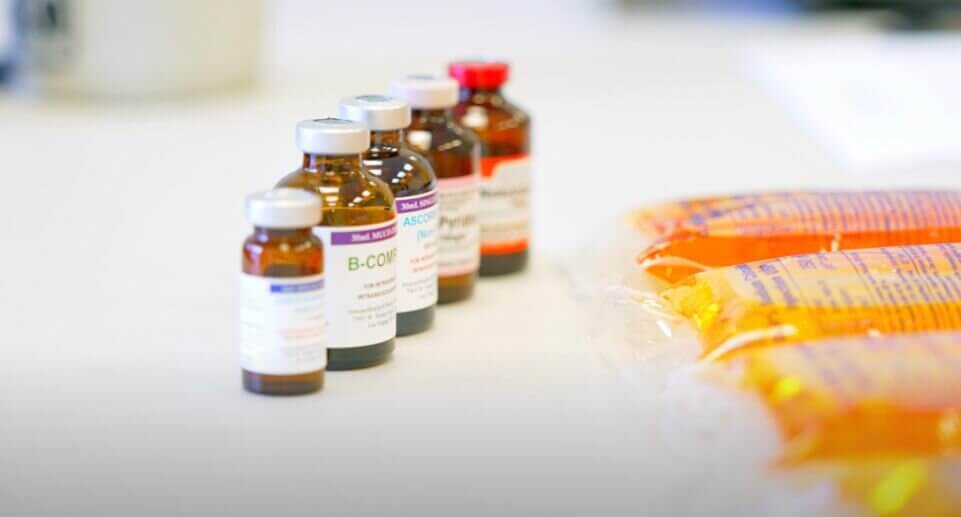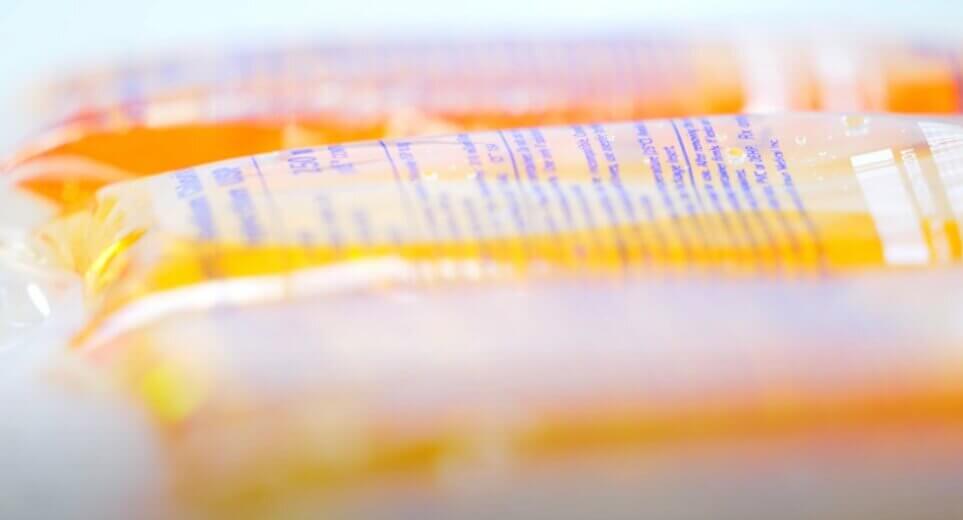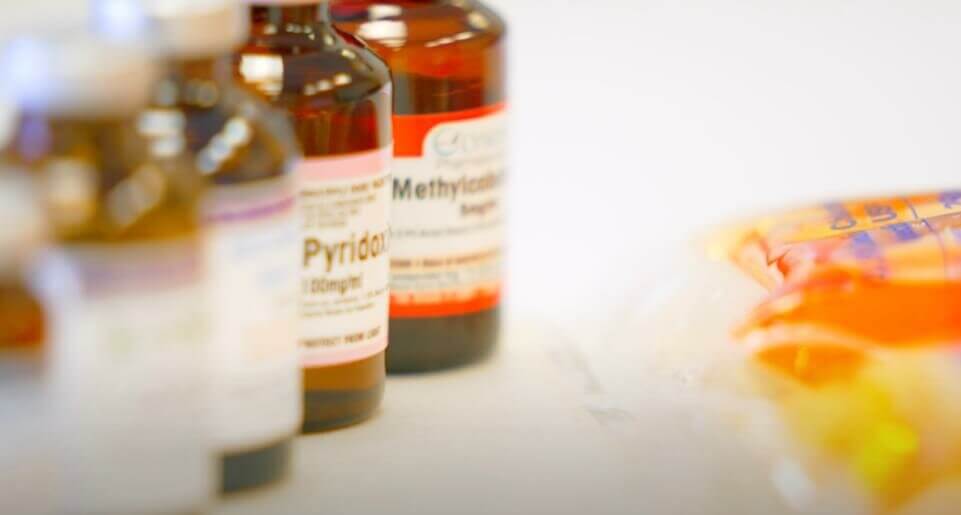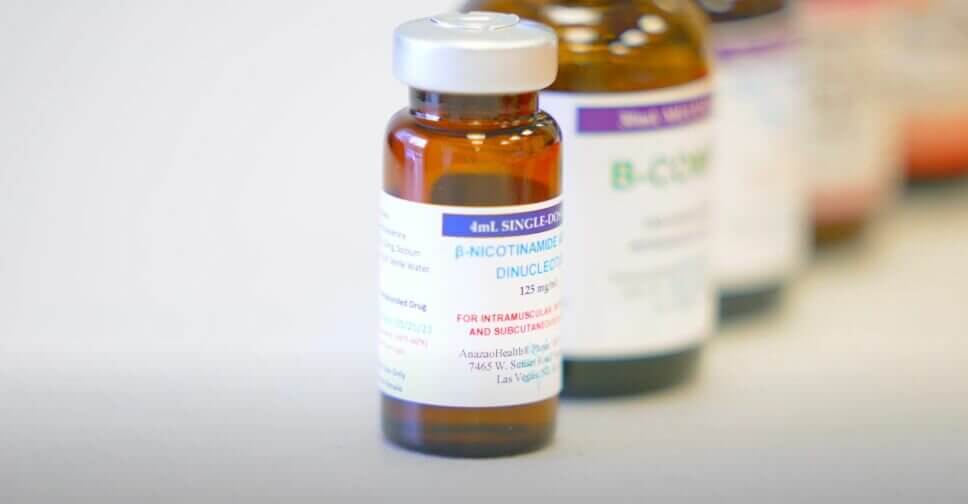Substance use disorders such as drug and alcohol addiction along with dual diagnosis mental health disorders can be heavy on the body during withdrawal. NAD therapy is an effective way to support the detox process, and increase energy, mental alertness, and overall wellness that can be positive during outpatient rehab at Refresh Recovery in San Diego.

Treating with NAD at Refresh Recovery supports the detoxification, recovery, and healing process along with vitamin replenishing, hydration, and energy aid.
NAD treatment, or nicotinamide adenine dinucleotide therapy, is a process of using a niacin co-enzyme that supports energy production for addiction treatment or mental health recovery. It does this by transforming the fuel we get from food into cellular power. Supporters of NAD therapy have made several assertions: it can help with brain processes, DNA restoration, and restoration of signals between molecules for cellular transmission. Supporting recovery with NAD as a complement will increase the chemical grades in someone’s body. At Refresh Recovery we believe in utilizing NAD therapy, combining the best of psychological, clinical, and supplement practices to make an addiction treatment and mental health therapies for disorders such as bipolar, schizophrenia, depression, and anxiety more efficient than conventional treatment methods.

NAD and Addiction
As a person uses drugs and alcohol, their natural share of NAD is reduced. Drug and alcohol addiction causes difficulty converting the energy broken down from meals. There are hypotheses that individuals who naturally make less NAD could develop a higher propensity for addiction, such as heroin and meth, and co-occurring disorders such as PTSD, stress, and others.
NAD Production in the Body
Other explanations for the body’s natural synthesis depletion of NAD are:
- PTSD
- Anxiousness
- Depression
- Brain injuries or Chronic traumatic encephalopathy (CTE)
- Alzheimer
- Parkinson
- Neurodegenerative disorders
- Aging
These co-occurring conditions can deplete energy. There are many methods to increase NAD in the body, such as exercising, consuming vitamin-rich meals, fasting, ingesting protein, and consuming natural foods. Many of these methods are presented to individuals in rehab treatment for substance abuse disorders (SUD) or addiction. For example, gyms or fitness facilities are open to promoting healthy lifestyle routines, increasing natural chemicals such as endorphins, and producing NAD. Dietary plans can include vitamin-rich foods to increase dopamine and make NAD in the brain. To feel the results, most clients require roughly 6 to 10 days of intake. Frequently, as people appreciate pleasurable feelings, they are less prone to misuse drugs and alcohol.
How Is NAD Therapy Used?
In NAD Therapy, the co-enzyme is put in an IV and slowly dripped into the bloodstream. This allows the NAD to avoid the stomach (where anesthetic drugs break down) and transit straight to the brain. This supplies the person with an increase of energy, supplying enhanced attitude and attention, as the power they obtain is directly from their biological origins, not drugs or foreign chemicals. It has been theorized to delay the aging function. These advantages have unlocked the entrance for rehabs and detoxes to use as a supplement to enhance treatment and outcomes.
By promoting it as an all-natural, mood-elevating, no-crash, anti-aging energy booster, clinics provide this service to people who have not suffered any addiction. It is announced as rehab support for more energy and invert aging.

NAD and Substance Use Disorders
Why Use NAD Therapy To Treat Addiction?
Excessive use of drug addiction and alcoholism will drain the body’s natural stores of NAD. The brain then cannot obtain the same energy it usually would from breaking down meals. NAD treatment provides the brain with the co-enzyme to replenish its stores, providing four critical effects.
- Increases the detoxification metabolism of drugs in the client’s body.
- Relieves withdrawal consequences, which can be quite challenging and painful to handle.
- Reduced cravings for alcohol and opiates such as heroin and lessened the pain of drug withdrawal, making a recovery easier physically and mentally.
- Production of natural energy, without a crash or jitters like caffeine and sugar or the adverse effects that come with other substances.
The Science of NAD Treatment
Research shows NAD treatment through IV for patients with critical drug withdrawal manifestation. These symptoms were associated with chronic opioid and alcohol abuse. Follow-up data indicates that NAD therapy significantly reduced acute withdrawal-like anxiety, stress, and depression symptoms.
Additional studies indicate that combining NAD with amino acids can provide recovery for individuals with addictions that are particularly profound, complete, and lasting. This mixture of NAD treatment with therapy significantly reduced anxiety, depression, and stress rates in the trial class. These advances suggest efficacy in treating drug and alcohol withdrawal signs without negative consequences.

